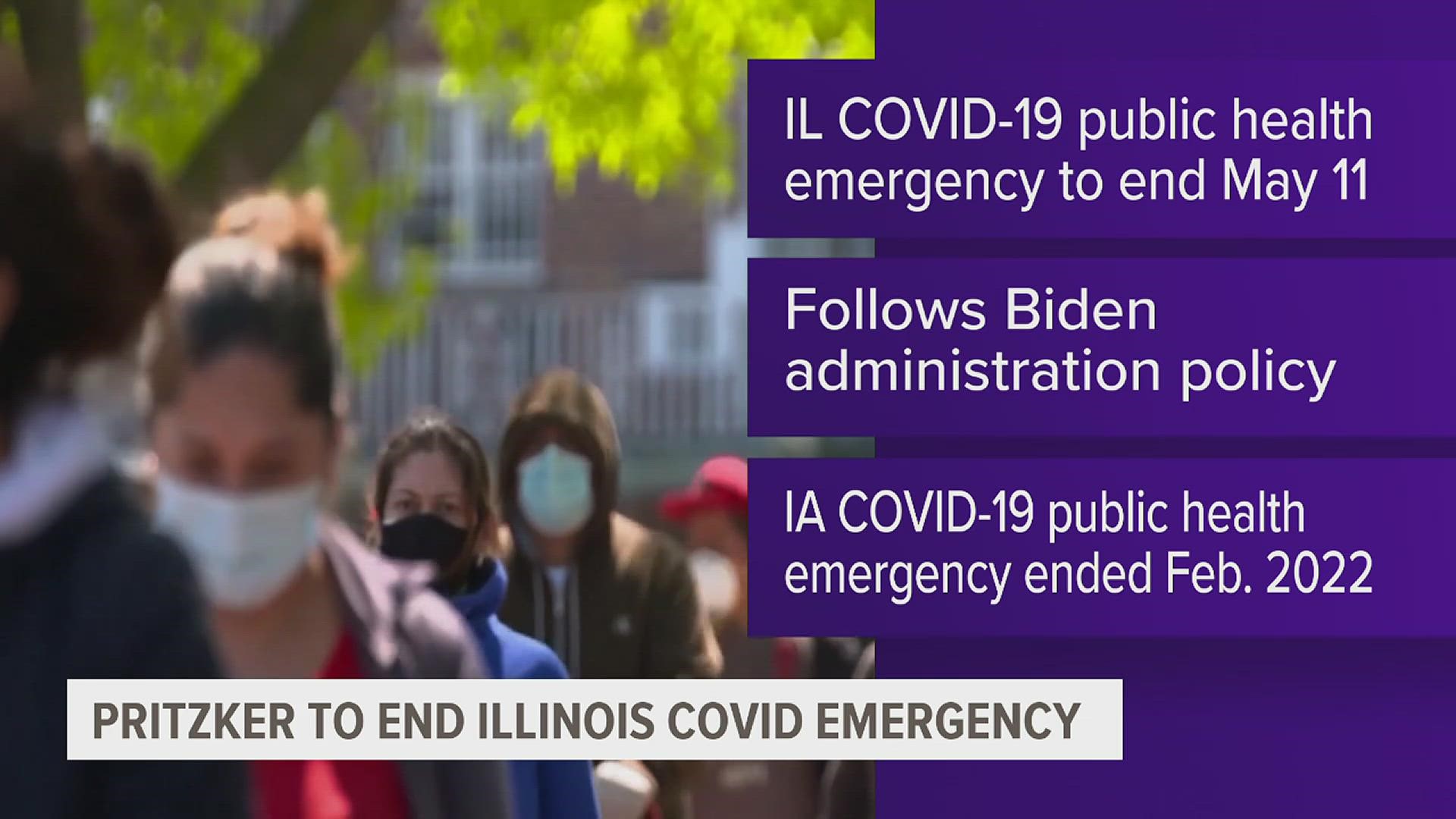SPRINGFIELD, Ill. — Illinois's COVID-19 public health emergency is coming to an end on May 11, according to an update from Gov. J.B. Pritzker.
Pritzker announced the move on Tuesday, Jan. 31, following a federal-level announcement from President Biden ending the national emergency on the same date.
Illinois is staying aligned with the federal government's COVID-19 policy through the end of the emergency as it has throughout the pandemic, to ensure that federal resources would always be available in the state's COVID-19 response. COVID emergencies in Iowa ended on Feb. 15, 2022.
“Since COVID-19 first emerged nearly three years ago, my administration has worked diligently alongside the federal government to battle this once-in-a-generation pandemic by following scientific and medical guidance to support frontline workers and save lives," Pritzker said. "Our state’s disaster proclamation and executive orders enabled us to use every resource at our disposal from building up testing capacity and expanding our healthcare workforce to supporting our vaccine rollout and mutual aid efforts."
Since it was declared on March 9, 2020, the public health emergency benefitted state and local agencies in a variety of ways.
- Allowing federal reimbursement for state response costs.
- Allowing use of State Disaster Relief Fund, covering direct state costs and reimbursements to Illinois National Guard and mutual aid groups.
- Allowing use of the state's mutual aid network, groups of public safety response professionals — including hundreds of health care providers and management professionals, law enforcement officers, firefighters, emergency medical technicians and disaster response professionals — are available to deploy to areas of shortage.
- Authorizing the Governor to activate Illinois National Guard reservists, some of whom were doctors and nurses and served on the front lines of the pandemic response.
- Allowing expedited procurement should it be necessary.
- Authorizing additional executive actions as needed to protect public health and safety.
- Availability of additional SNAP benefits, pandemic EBT support and health resources and telehealth growth through Medicaid expansion.
Even though the emergency is coming to a close, state officials still stress the need to get vaccinated and boosted against COVID-19, as it now remains an endemic health risk still threatening the lives of Americans.
“Let me be clear: COVID-19 has not disappeared. It is still a real and present danger to people with compromised immune systems—and I urge all Illinoisans to get vaccinated or get their booster shots if they have not done so already," Pritzker added.
More From News 8
Watch more news, weather and sports on News 8's YouTube channel

